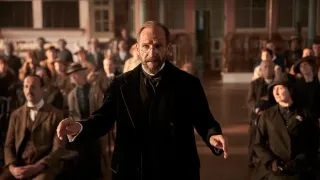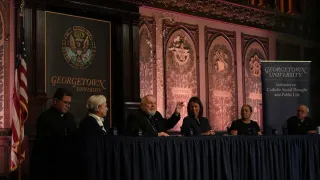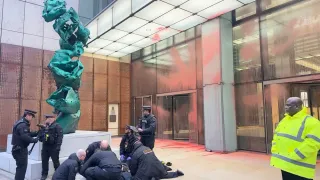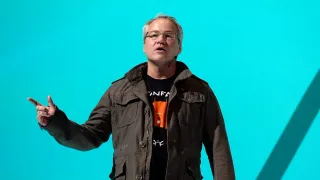September 16, 2016
Stephen Curry Hopes for Changes to LGBT Law in North Carolina
Jenna Fryer READ TIME: 3 MIN.
Stephen Curry said he is disappointed to see sporting events pulled from his home state of North Carolina over a law that some say can lead to discrimination against LGBT people. And the two-time NBA MVP hopes lawmakers make changes to the so-called "bathroom bill" before more major events follow the NBA's All-Star game and the NCAA men's basketball tournament out the door.
Curry, who grew up in Charlotte and played college basketball at nearby Davidson, said Thursday he has mixed feelings about sporting events leaving the state. The NBA has pulled next year's All-Star game out of Charlotte, and the NCAA this week began the process of relocating seven championships from North Carolina, including the opening weekend of the men's basketball tournament.
The ACC followed suit and said its conference championship football game will not be played in Charlotte.
"I think it's unfortunate for our city and our state to be under the microscope with HB2 and how it's unfolded," Curry said in an interview with The Associated Press. "I'm all for equal and fair rights and treatment for everybody. Until it gets addressed, until some changes are made, this could be a recurring theme in North Carolina. I don't want that happen.
The law, signed by Republican Gov. Pat McCrory earlier this year, requires transgender people to use restrooms at schools and government buildings corresponding to the sex on their birth certificates. It also excludes gender identity and sexual orientation from local and statewide antidiscrimination protections and was passed to counteract Charlotte's approval of an anti-discrimination ordinance for lesbian, gay, bisexual and transgender people at hotels, restaurants and retailers.
Apple, Google and Facebook have all come out against the law while entertainers including Bruce Springsteen and Pearl Jam have canceled concerts in the state in response.
North Carolina has hosted more men's basketball tournament games (251) than any other state over the last 65 years. Long before Curry led the Golden State Warriors to back-to-back NBA Finals appearances and a championship in 2015, he burst on to the basketball scene as a sharpshooter at Davidson in the 2009 NCAA tournament.
"The All-Star Game has been moved, the NCAA Tournament, things that would bring so much joy and support to the city, mainstay events. But I think it's a conversation that will continue until changes are made. I don't have any answers as to how that will happen, but hopefully it happens sooner rather than later."
Curry also said he respected San Francisco 49ers quarterback Colin Kaepernick's decision to sit and then kneel during the national anthem in response to social injustice, but doesn't plan to make that kind of a stand himself when the NBA season begins.
Orlando Magic guard Victor Oladipo told Complex on Thursday that he was sure some NBA players would take similar action. Curry said it was important for Kaepernick to start the conversation on some very important issues, but he won't be joining him in that particular demonstration.
"That's not how I would have done it," Curry said. "To put myself in my own shoes come our first game when the national anthem is played, I have pride in our country. We can't figure out how to make the necessary changes when it comes to certain policies, even in the criminal justice system, without conversation. I probably won't do any kneeling or protesting in that form.
"But, Colin did it in that way because that was his way, the best way, of starting the conversation. You've got to respect that, but everybody has to do it a different way."
Curry spoke during a commercial shoot for Degree Men TV, one of his original sponsors. He said he is still getting used to the idea that his views on such issues are considered important. He is entering his eighth season in the league, but struggled with injuries and played on a bad Warriors team early in his career. It has only been over the last two that Curry has rocketed into superstardom and assumed the platform that comes with it.
"It's still kind of a new process," Curry said. "Other than being under a huge microscope, I don't see it as a negative at all and I am not too sensitive to not think I can say a certain thing, or have a certain belief, and meet some resistance. Or even face certain repercussions.
"But it is different, because four, five years ago, what I said, nobody cared. It's kind of weird just because I hit a bunch of shots, I've got a platform and I've got to be able to use it and take it all in stride."






